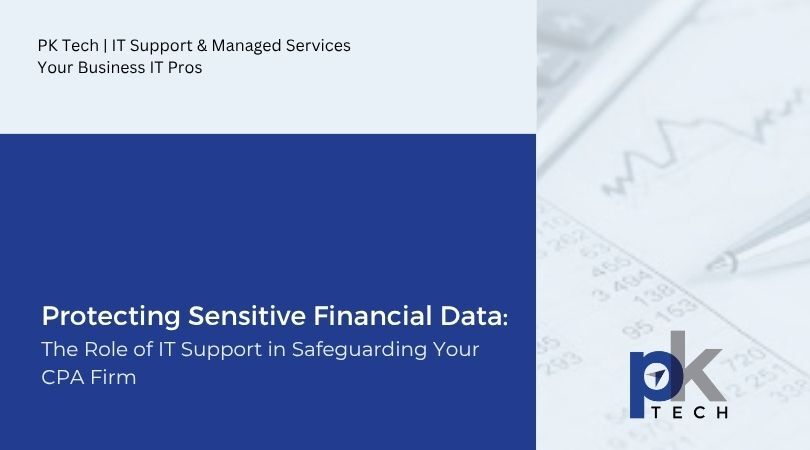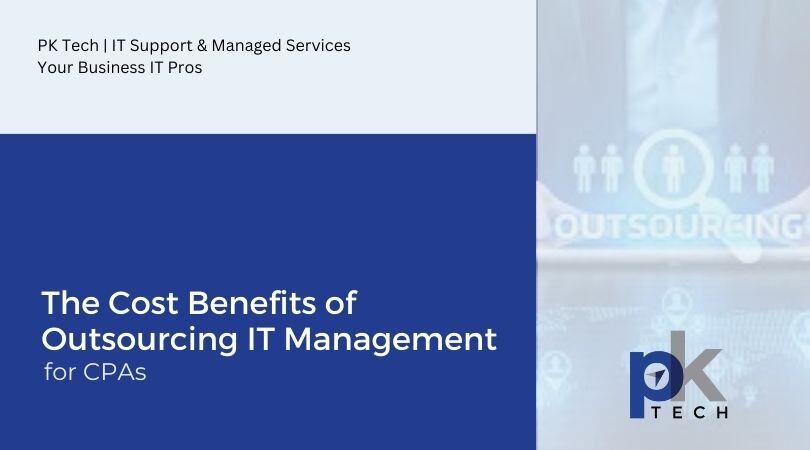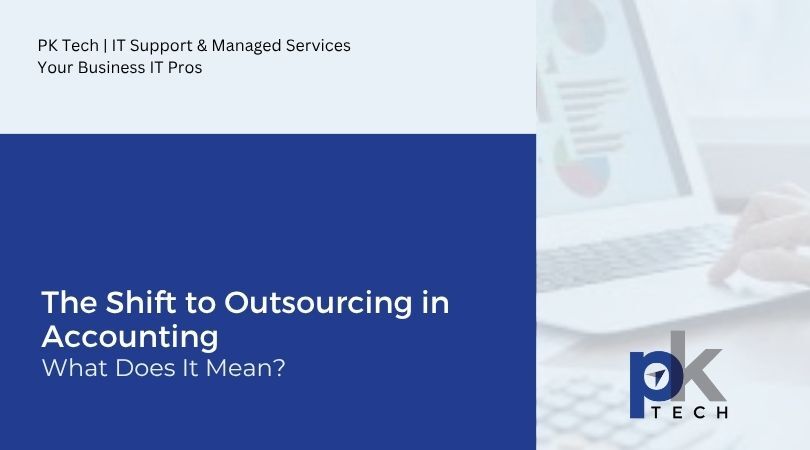Protecting Sensitive Financial Data: The Role of IT Support in Safeguarding Your CPA Firm
CPA’s are in the business of sensitive data – and the growing threat landscape around safeguarding sensitive financial information comes with the...
Accounting firms are under increasing pressure to streamline operations, reduce costs, and deliver more strategic value to clients. As a result, many are turning to outsourcing to remain competitive and agile. Outsourcing has long been a solution for industries looking to increase productivity and reduce costs.
From back-office bookkeeping to IT management and even CFO-level consulting, outsourcing is no longer just about cutting costs — it's about maximizing efficiency and enabling firms to focus on their core competencies.
This blog explores how accounting firms can effectively embrace outsourcing and use it as a competitive advantage in a constantly changing business world.
Outsourcing isn’t a new concept, but its role in the accounting industry has significantly evolved. Firms now outsource not only routine tasks like data entry and payroll processing but also more advanced functions such as tax preparation, financial analysis, cybersecurity, and cloud IT support.
The main drivers behind this shift include:
Outsourcing can touch nearly every aspect of an accounting practice. Here are four key areas where firms are seeing the most impact:
Routine financial recordkeeping — once a core, in-house function — is increasingly being outsourced. Third-party providers offer 24/7 bookkeeping services using cloud platforms that integrate seamlessly with clients’ financial systems. This allows firms to:
Seasonal tax workloads can overwhelm internal teams. By outsourcing tax return preparation and compliance tasks, firms can handle higher volumes during peak seasons without overstaffing. Plus, tax outsourcing specialists often stay up-to-date with the latest regulatory changes, helping reduce risk.
As cyber threats grow and data privacy laws become more stringent, outsourcing IT management and cybersecurity to specialized vendors has become a smart strategy. Managed IT service providers offer:
This gives firms the peace of mind that their systems are secure while freeing up internal resources to focus on client-facing activities.
Outsourcing isn’t just for low-level tasks. Many firms are expanding their service lines by partnering with virtual CFO providers or financial analysts to deliver higher-value insights. These experts help clients with:
By offering these services without needing to build in-house capacity, firms can elevate their value proposition and strengthen client relationships.
Transitioning to an outsourcing model requires thoughtful planning. Here are a few best practices to make the shift smooth and effective:
The future of accounting is about agility, specialization, and delivering deeper client value. Outsourcing supports all three of these objectives. By strategically leveraging external expertise, firms can focus more on client relationships, advisory growth, and innovation. Ultimately, you win.
Rather than seeing outsourcing as a threat to traditional operations, forward-thinking firms recognize it as a catalyst for transformation. With the right approach, outsourcing can be a powerful tool to scale services, increase profitability, and stay ahead in an increasingly competitive landscape.
Is your firm integrating outsourcing into your business plan? Our team is ready to chat. As a managed IT service provider, PK Tech is proud to offer 15 years of experience with a focus on accounting firms. We boast AICPAs SOC 2 Type II attestation, proving via third-party audit by an independent CPA firm that we passed a rigorous and comprehensive assessment of our security and privacy controls. Schedule a time to chat with our team here.

CPA’s are in the business of sensitive data – and the growing threat landscape around safeguarding sensitive financial information comes with the...

As you’ve nearly survived the April 15th deadline, your firm may have experienced hiccups along the way — or more serious issues — making you...
-3.jpg)
Whether it’s the April 15th deadline, the October extension deadlines, or all of the corporate quarterly deadlines in between, accounting firms are...
